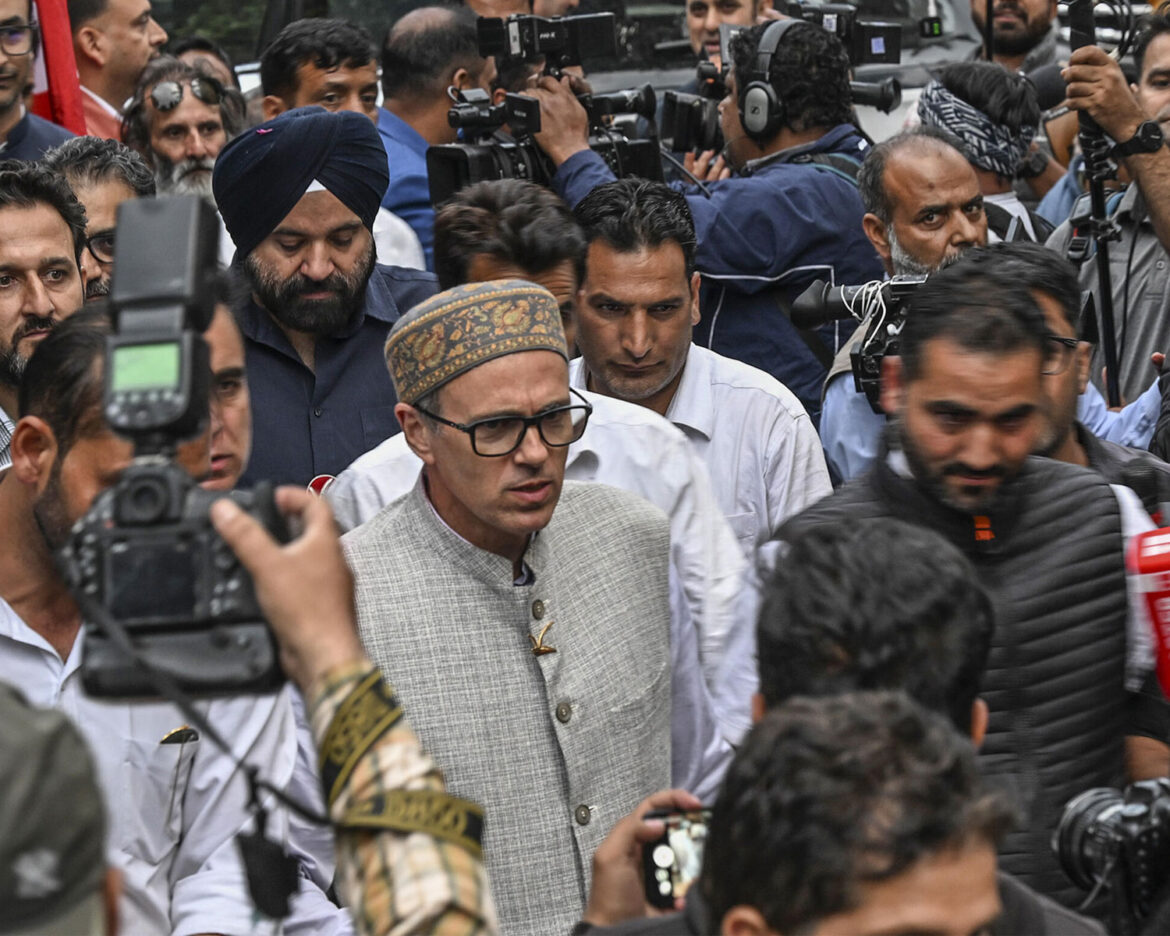Indian-occupied Kashmir (IoK) elected its first regional government on Tuesday since the territory was brought under New Delhi’s direct control in 2019. In a significant political development, voters supported opposition parties, including the National Conference (NC) and Congress, to lead the 90-seat assembly, signaling their discontent with the Indian government’s decision to revoke Kashmir’s special status.
In August 2019, India’s ruling Bharatiya Janata Party (BJP) repealed Article 370 of the Indian Constitution, a move that stripped Kashmir of its special autonomy and limited the power of the state legislature. Since then, the Muslim-majority territory of around 12 million people had not had an elected government, operating instead under the rule of a governor appointed by New Delhi.
These local elections, held after a gap of nearly a decade, come after the BJP’s third-term victory in national elections earlier this year. The outcome of the local elections, however, is being seen as a direct challenge to the central government’s policies in Kashmir.
National Conference and Congress Set to Form Government
As the results rolled in, the NC-Congress alliance secured a dominant lead, winning 47 of the 90 assembly seats. This alliance is expected to form the new regional government. The BJP trailed behind with 27 seats. Supporters of the NC and Congress erupted in celebrations, with many calling the election results a de facto referendum against New Delhi’s controversial decision to revoke Kashmir’s special status.
“The people have given their judgment against what New Delhi did,” said social activist Iqbal Ahmad Bhat, referring to the repeal of Article 370. Political rights and the restoration of local governance were key demands from the people, who hope for a return to greater autonomy.
Political Implications and Continued Criticism of New Delhi’s Governance
Despite the victory for the opposition parties, critics have noted that the assembly will hold limited powers, particularly in education and cultural matters. New Delhi retains the authority to override regional legislation and will continue to appoint the governor. Thus, while the elections represent a shift in local governance, they are seen as a nominal change under the larger framework of federal control.
The BJP has maintained that the changes to IoK’s governance have ushered in a new era of peace and economic growth for the region. However, opposition leaders and many local residents reject these claims, saying that Kashmir’s autonomy and democratic rights are still compromised.
Farooq Abdullah, president of the National Conference, described the election results as a “verdict” against Prime Minister Narendra Modi’s government. His son, Omar Abdullah, who is expected to become the new chief minister, received jubilant support from the crowds.
Security Concerns Persist in Kashmir
Despite the optimism surrounding the election, Kashmir remains heavily militarized, with over half a million Indian troops stationed in the region. The ongoing insurgency, which has claimed tens of thousands of lives over the past 35 years, continues to be a major concern. More than a dozen people have been killed this year alone in the conflict.
Election Results in Haryana and Future Implications
In parallel elections held in Haryana, a state north of New Delhi, the BJP made a strong comeback, leading in 51 seats out of 90, with Congress trailing behind at 33 seats. The results in Haryana, which also saw the entry of former wrestler Vinesh Phogat into politics, further bolstered the BJP’s standing as it gears up for provincial elections in the politically important states of Maharashtra and Jharkhand later this year.
The outcome in IoK, however, has added a new dimension to the opposition’s political revival. A win for the NC-Congress alliance is seen as a major boost for Rahul Gandhi, the leader of the opposition in the Indian Parliament, who has faced criticism for the Congress party’s recent decline in popularity.
Looking Ahead
As Kashmir adjusts to its new political landscape, the results highlight the growing resistance to central government policies and the persistent calls for greater autonomy. With Modi’s BJP facing mounting challenges both at home and abroad, the outcomes in Kashmir and Haryana are a testament to the evolving dynamics of Indian politics.



